
Telefoni Bianchi films, also called deco films, were made by the Italian film industry in the 1930s and the 1940s in imitation of American comedies of the time in a sharp contrast to the other important style of the era, calligrafismo, which was highly artistic. The cinema of Telefoni Bianchi was born from the success of the Italian film comedy of the early 1930s; it was a lighter version, cleansed of any intellectualism or veiled social criticism.

Luisa Ferida, real surname Manfrini, was an Italian stage and film actress. She was one of divas in Italian cinema during decade 1935–1945 and she was the highest paid movie star of that period. The actress was famous as a films diva and she is remembered for her tragic death; in fact during the period of anti-fascist vendettas, immediately after Italian Civil War, she was assassinated, as was later proved by the Milan Court of Appeal, by shooting following a summary trial carried out by some partisans: she was shot with her lover, the actor and member of Decima Flottiglia MAS Osvaldo Valenti, as accused of alleged and hypothetical participation in war crimes and torture in connection with so-called Koch gang, facts of which she was then deemed innocent after the war. Therefore a war pension was allocated to the mother, who had no other source of income.

The Man Who Smiles is a 1936 Italian "white-telephones" comedy film about an Oedipus Complex, directed by Mario Mattoli. The film stars Vittorio De Sica, Umberto Melnati, Enrico Viarisio, Assia Noris and Paola Borboni. It is based on a play by Aldo De Benedetti.It was shot at the Tirrenia Studios.
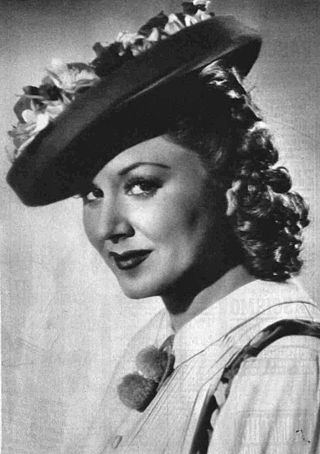
Paola Barbara was an Italian film actress. She appeared in more than 60 films between 1935 and 1978. She was sometimes credited as Pauline Baards.
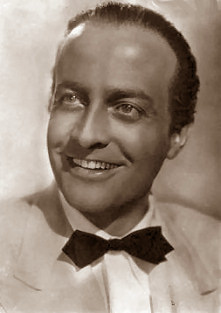
Osvaldo Valenti was an Italian film actor. Valenti starred in several successful Italian movies of the late 1930s and early 1940s, such as the famous The Iron Crown and The Jester's Supper. He appeared in more than 50 films between 1928 and 1945. He and his lover, Luisa Ferida, were executed by partisans in Milan, Italy, due to their links with Fascism. Their story was portrayed in the 2008 film Wild Blood.
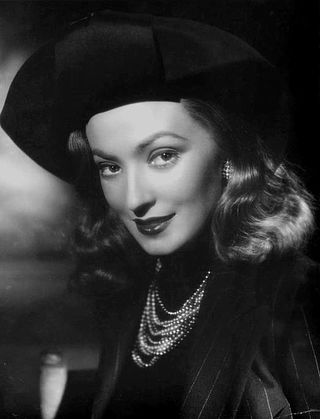
Doris Duranti was an Italian film actress. She appeared in 43 films between 1935 and 1975. She had a years-long affair with Alessandro Pavolini, a Fascist politician who in 1945 was executed by Italian partisans; his body was then hung with that of Benito Mussolini.
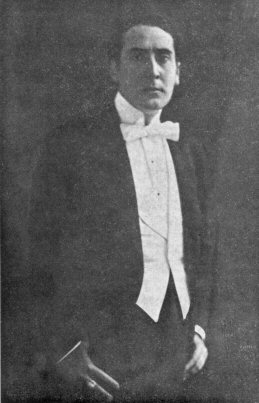
Mario Bonnard was an Italian actor and film director.

Aldebaran is a 1935 Italian drama film directed by Alessandro Blasetti and starring Gino Cervi, Evi Maltagliati and Gianfranco Giachetti. The film was a naval melodrama, an attempt by Blasetti to make a more commercial film following the difficulties encountered with the propagandist The Old Guard (1934).
The King's Jester is a 1941 Italian historical drama film directed by Mario Bonnard and starring Michel Simon, María Mercader and Rossano Brazzi. The film is an adaptation of the play Le roi s'amuse by Victor Hugo and uses music from Verdi's later opera Rigoletto. It is set at the court of Francis I of France in the Sixteenth century.

The Castiglioni Brothers is a 1937 Italian "white-telephones" comedy film directed by Corrado D'Errico and starring Camillo Pilotto, Ugo Ceseri and Amedeo Nazzari. It was based on a play of the same title by Alberto Colantuoni. The film's sets were designed by the art director Guido Fiorini.

Under the Southern Cross is a 1938 Italian drama film directed by Guido Brignone and starring Antonio Centa, Doris Duranti and Enrico Glori. The film is set in Italian-occupied Abyssinia following the recent Italian victory there. It was one of a sequence of eight films set in Italy's African Empire during the Fascist era that were released between 1936 and 1939. The film is a propaganda piece designed to support Fascist policy on empire and concerns about inter-racial romances.

The Innkeeper is a 1944 Italian historical comedy film directed by Luigi Chiarini and starring Luisa Ferida, Armando Falconi and Osvaldo Valenti. The film is an adaptation of Carlo Goldoni's 1753 play The Mistress of the Inn, one of a number of times the work has been turned into films. It belongs to the movies of the calligrafismo style.
Wealth Without a Future is a 1939 Italian drama film directed by Ferdinando Maria Poggioli and starring Lamberto Picasso, Paola Borboni and Doris Duranti. A wealthy industrialist retires to live in the countryside.
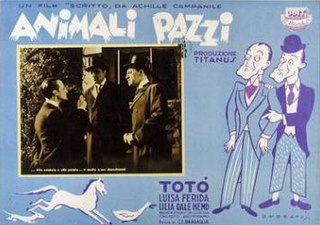
Mad Animals is a 1939 Italian "white-telephones" comedy film directed by Carlo Ludovico Bragaglia and starring Totò, Luisa Ferida and Calisto Bertramo. It was made at the Titanus Studios in Rome.
The Joker King is a 1935 Italian historical comedy film directed by Enrico Guazzoni and starring Luisa Ferida, Armando Falconi and Luigi Cimara.
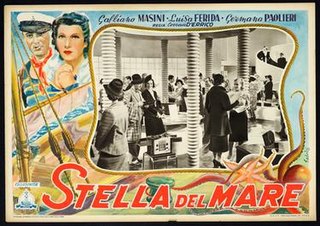
Star of the Sea is a 1938 Italian "white-telephones" comedy film directed by Corrado D'Errico and starring Galliano Masini, Luisa Ferida and Germana Paolieri.

Golden Arrow is a 1935 Italian crime film directed by Piero Ballerini and Corrado D'Errico and starring Luisa Ferida, Guido Barbarisi and Ennio Cerlesi. It was screened at the 1935 Venice Film Festival.
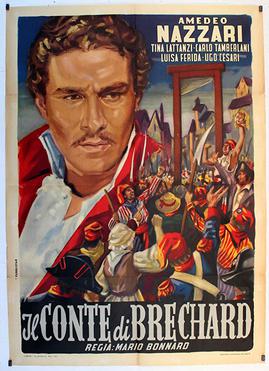
The Count of Brechard is a 1938 Italian historical drama film directed by Mario Bonnard and starring Amedeo Nazzari, Luisa Ferida, and Ugo Ceseri. It was adapted from the Giovacchino Forzano play. The film's sets were designed by the art director Virgilio Marchi.

The Amnesiac is a 1936 Italian comedy film directed by Gennaro Righelli and starring Angelo Musco, Checco Durante and Franco Coop. The film's plot is based on a stage play, inspired by the Bruneri-Canella case. It was shot at Cines Studios in Rome. The film's sets were designed by the art director Mario Rappini.
The Ambassador is a 1936 Italian historical comedy film directed by Baldassarre Negroni and starring Leda Gloria, Luisa Ferida and Maurizio D'Ancora.
















